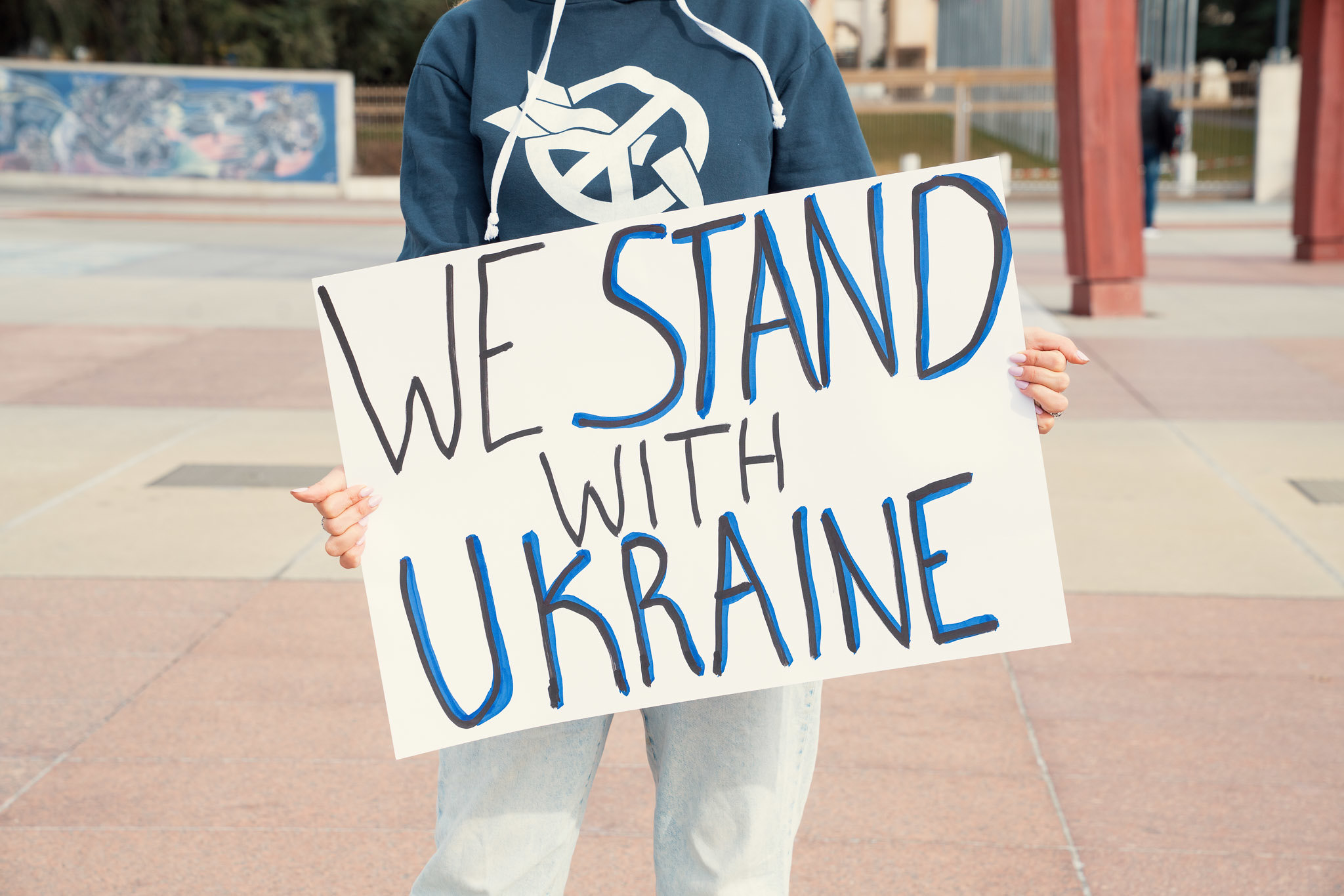Not only has Russia actually started a war in Ukraine, it has also threatened to use nuclear weapons to defend its sovereignty. Russia’s ambassador to the Netherlands had already hinted at this during his interview with the Dutch current affairs TV programme Nieuwsuur on 16 February, and President Putin repeated the threat in his declaration of war on 24 February. This development in the invasion of Ukraine, which Russia claims is intended to defend its own interests, is extremely disquieting. All states with nuclear weapons should instead work towards disarmament.
Catastrophic
The situation in Ukraine once again lays bare the danger inherent in the fact that many states still possess weapons of mass destruction. In the heat of a conflict such as the one now being waged in Ukraine the risk of nuclear weapons being deployed is greater than ever. Their use would by definition be catastrophic for civilians. Given the high number of victims, the destruction of infrastructure and the hazards caused by radiation, any assistance following a nuclear explosion would be impossible. The environmental consequences would also be enormous, as contaminated land would be unusable. It is a saddening fact that the potential consequences can already be seen in Ukraine itself, as the explosion at the Chernobyl nuclear power station in 1986 released radiation on a scale that continues to be a public health hazard to this very day.
History
Nuclear weapons have been hovering in the background to the conflict in Ukraine for a long time. When the Soviet Union collapsed in 1991, Ukraine transferred the Soviet nuclear arms on its territory to Russia after which, in 1994, it signed the Nuclear Non-Proliferation Treaty. The agreements made in it were subsequently sealed in the Budapest Memorandum, under which the United States, the United Kingdom and Russia undertook to respect Ukraine’s boundaries in accordance with the UN Charter. The violation of Ukraine’s territorial integrity therefore breaches not only international law but also the agreements made in that memorandum.
Disarmament is the only solution
In his 21 February speech, President Putin claimed that Ukraine was working to produce new nuclear weapons. Experts say there is no evidence of this whatsoever. In neighbouring Belarus, however, an amendment to the constitution is currently being prepared that would allow the country to host nuclear weapons again. President Lukashenko of Belarus had previously invited Russia to redeploy Russian nuclear weapons in his country, a dangerous development that would increase the number of territories with nuclear arms and one that should be immediately censured. Other countries that still possess nuclear weapons are China, India, Israel, North Korea, Pakistan, the United States, France and the United Kingdom. In addition, under NATO’s nuclear sharing policy, US nuclear weapons are currently stationed in the Netherlands, Germany, Belgium, Italy and Turkey.
Treaty on the Prohibition of Nuclear Weapons
The only way to reduce the risk posed by nuclear arms is to dismantle them. The Treaty on the Prohibition of Nuclear Weapons (TPNW) has been in force since 2021 and has already been ratified by 59 countries. This is a strong signal from non-nuclear states to countries that do have nuclear weapons to put an end to the global and unacceptable threat inherent in those weapons.
More information on nuclear weapons in relation to the escalating crisis in Ukraine can be found on the website of the International Campaign to Abolish Nuclear Weapons (ICAN). This is a coalition of NGOs, including PAX, across 100 countries that support the TPNW and promote its implementation.




